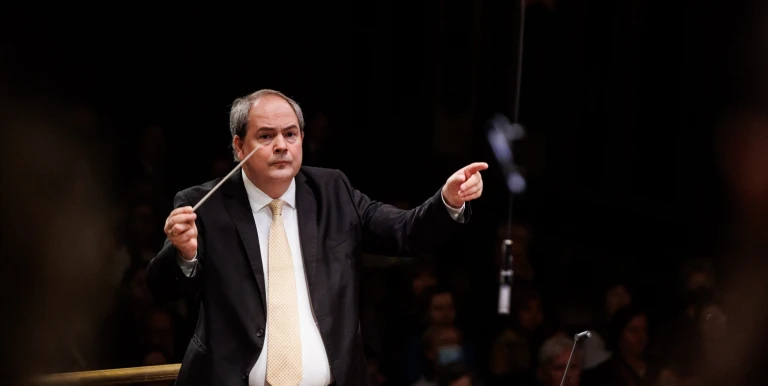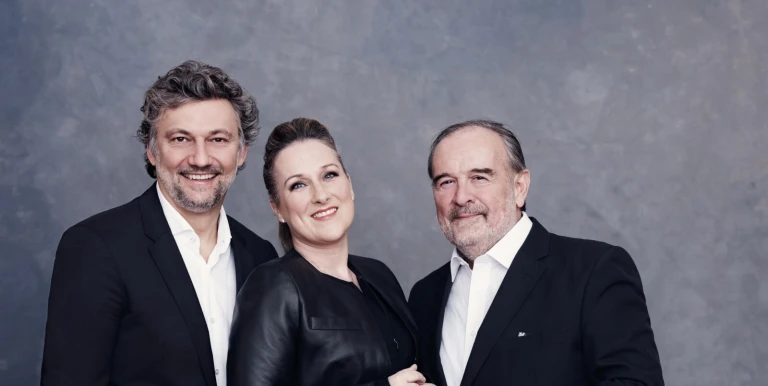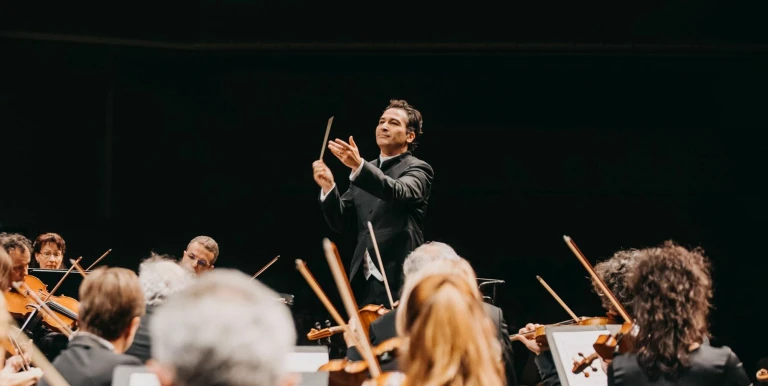Conductor:
Featuring:
Brahms
Begräbnisgesang, Op. 13
Brahms
German Requiem, Op. 45
The beginning of the chilly month of November is a period of remembrance: we visit cemeteries on All Saints Day' and cherish the memory of our deceased loved ones. Requiem masses are performed in churches and concert halls, including at Müpa Budapest. On this occasion, conductor György Vashegyi and the Purcell Choir will be joined by Concerto Budapest to perform a masterpiece by Johannes Brahms, his German Requiem, which will be preceded at the concert by an earlier choral work, the seldom heard Begräbnisgesang (Funeral Song).
Brahms's German Requiem is different from other requiems. First, it more closely resembles an oratorio, as it does not make use of the text for a mass, and second, it is in German rather than Latin. And although the composer compiled the libretto from Luther's German Bible as well as from apocryphal texts, the atheism espoused by the free-thinking Brahms was practically public knowledge. "Such a great man! Such a great soul! And he believes in nothing!” his friend Antonín Dvořák once declared regretfully. Nevertheless, grief and tragedy often make believers out of unbelievers: the first sketches of the German Requiem were made in 1856, coinciding with the death of Robert Schumann, and after a long hiatus, Brahms returned to the composition in 1865, after losing his mother. Progress was a slow process, but the end result brought the composer world fame. The archaicising Begräbnisgesang (Funeral Song), composed for choir and wind instruments in 1858, is often regarded as a forerunner of the German Requiem. Analysts say this work also commemorates Schumann's death, like the Piano Concerto in D minor, and the text from Michael Weisse's songbook evokes the image of a funeral.
Joining the Concerto Budapest orchestra this time will be the Purcell Choir and well known soloists Klára Kolonits and Nikolay Borchev, and György Vashegyi, a highly influential conductor of early music in Hungary, thus guaranteeing that we will be able to get to know this esteemed Romantic oratorio from a new perspective.
Presented by: Concerto Budapest
-
We wish to inform you that in the event that Müpa Budapest's underground garage and outdoor car park are operating at full capacity, it is advisable to plan for increased waiting times when you arrive. In order to avoid this, we recommend that you depart for our events in time, so that you you can find the ideal parking spot quickly and smoothly and arrive for our performance in comfort. The Müpa Budapest underground garage gates will be operated by an automatic number plate recognition system. Parking is free of charge for visitors with tickets to any of our paid performances on that given day. The detailed parking policy of Müpa Budapest is available here.














